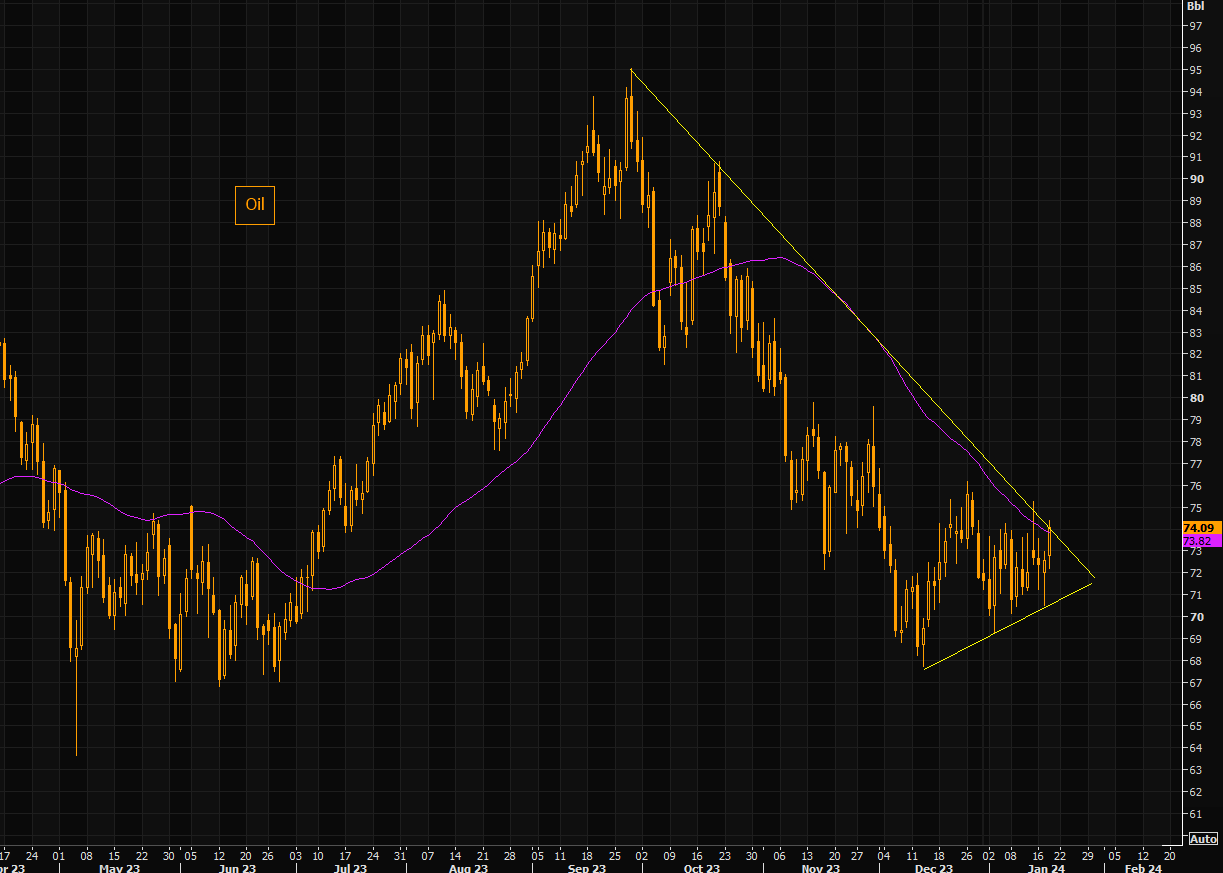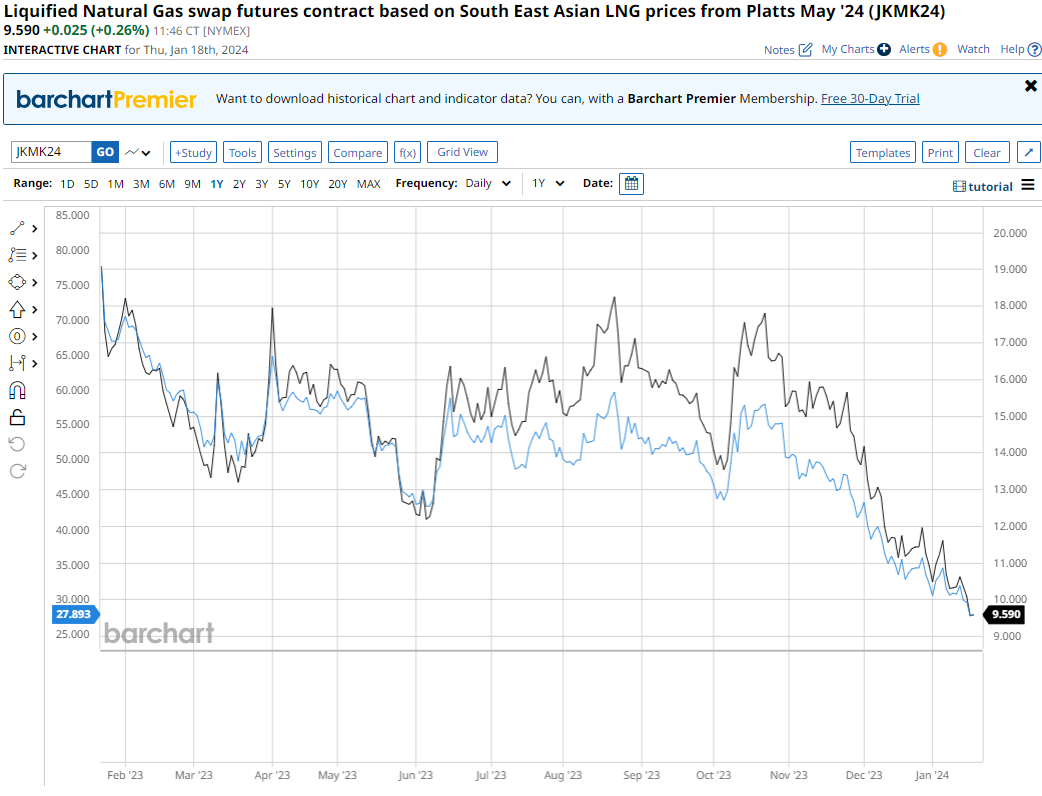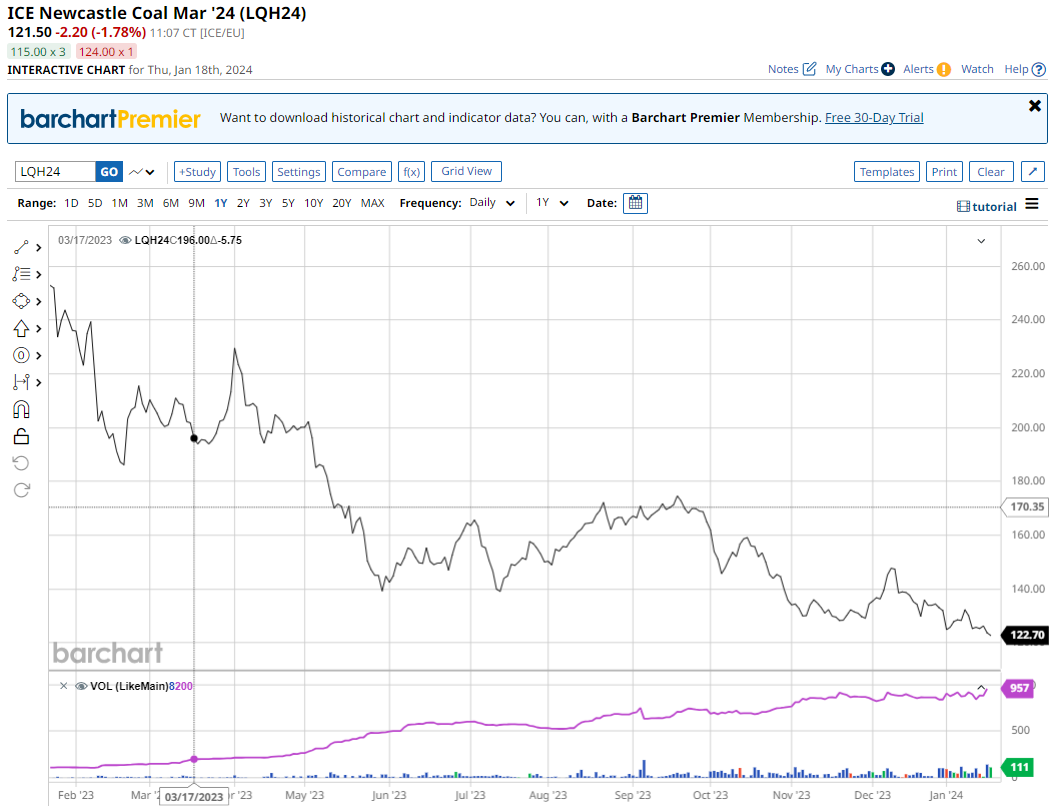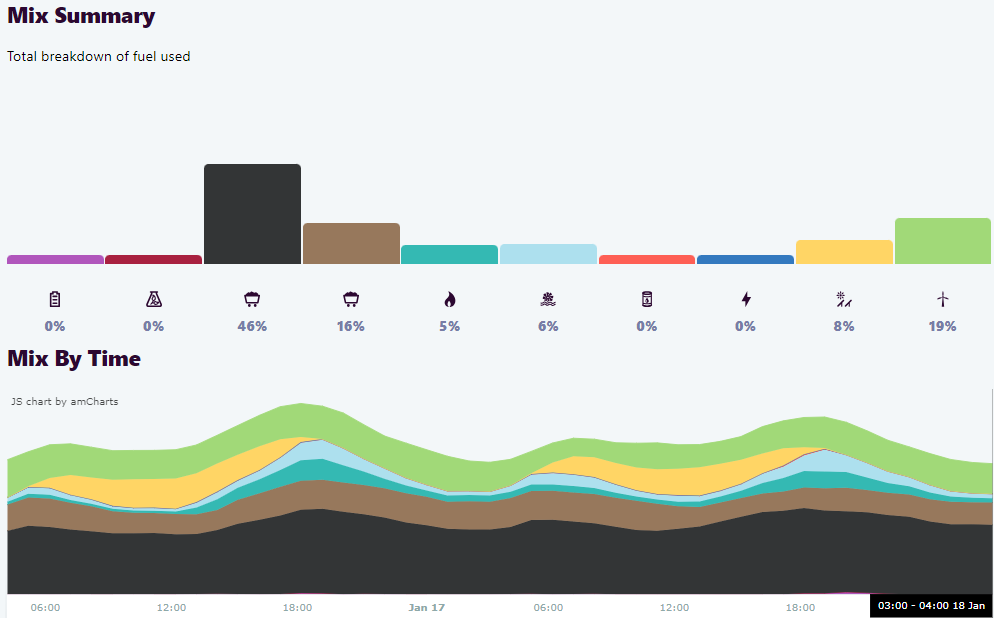Oil is threatening a little:

As CTA upside convexity looks problematic.

But the IEA is still sanguine:
- Global oil demand growth slowed to 1.7 mb/d y-o-y in 4Q23 – well below the 3.2 mb/d rate registered during 2Q23-3Q23, mirroring the unwinding of China’s post-pandemic release of travel demand. Growth is projected to ease from 2.3 mb/d in 2023 to 1.2 mb/d in 2024, as macroeconomic headwinds, tighter efficiency standards and an expanding EV fleet compound the baseline effect.
- World oil supply is forecast to rise by 1.5 mb/d to a new high of 103.5 mb/d, fuelled by record-setting output from the US, Brazil, Guyana and Canada. Non-OPEC+ production will dominate growth this year, accounting for close to 1.5 mb/d. By contrast, OPEC+ supply is expected to hold broadly steady on last year, assuming extra voluntary cuts that started this month are phased out gradually in 2Q24.
Gas looks better. Asian and European gas firmed only slightly yesterday:

Coal kept falling:

The local gas spot market is glued to Albo’s stupid $12Gj ceiling. The cartel will sell it for no less:

Steadily driving up electricity prices:

Which is being protected by friendly weather. Unseasonal cold and wind in the south:

What Albo needs to do is lower the gas price cap or apply export levies to break the gas export cartel price chokehold. That would permanently crash power prices.
Instead, he is going to let the gouge flow through and subsidise retail bills:
One idea is leading the agenda. The government is considering another round of subsidies for household energy bills after the success of the $3 billion package it rolled out last year.
The first round of the Energy Bill Relief Fund cut electricity bills for more than five million households, so there is strong support in the Labor caucus for a second round. The timing is right because the first phase cut bills in the financial year that ends on June 30, which means a decision is needed on what happens from July 1.
The first phase used $1.5 billion in federal money and matching funds from the states and territories to cut electricity bills for pensioners and others on income support. It used existing state schemes to pay the money, so the federal government did not have to set up a new mechanism.
This is a half-arsed cyclical solution for a structural problem that is still robbing Australians.
The gas export cartel pays no tax. So, the profits it derives from the high gas and power prices are not recouped by the budget.
The revenue for energy subsidies comes from elsewhere, either higher taxes, lower costs, or more debt.
So long as the federal budget is in good fettle and we are fighting inflation, this is a defensible policy.
But when the budget falls back into deficit ahead, paying off the cartel via subsided household and business bills becomes $@!%&*^ obnoxious policy.
In effect, the Australian taxpayer will be bribing the gas export cartel to ship cheap Aussie gas to China (which takes three-quarters of it).
It appears this is Albo’s credo. Fix nothing. Pay off everybody.
Doubley so if they are in China.

